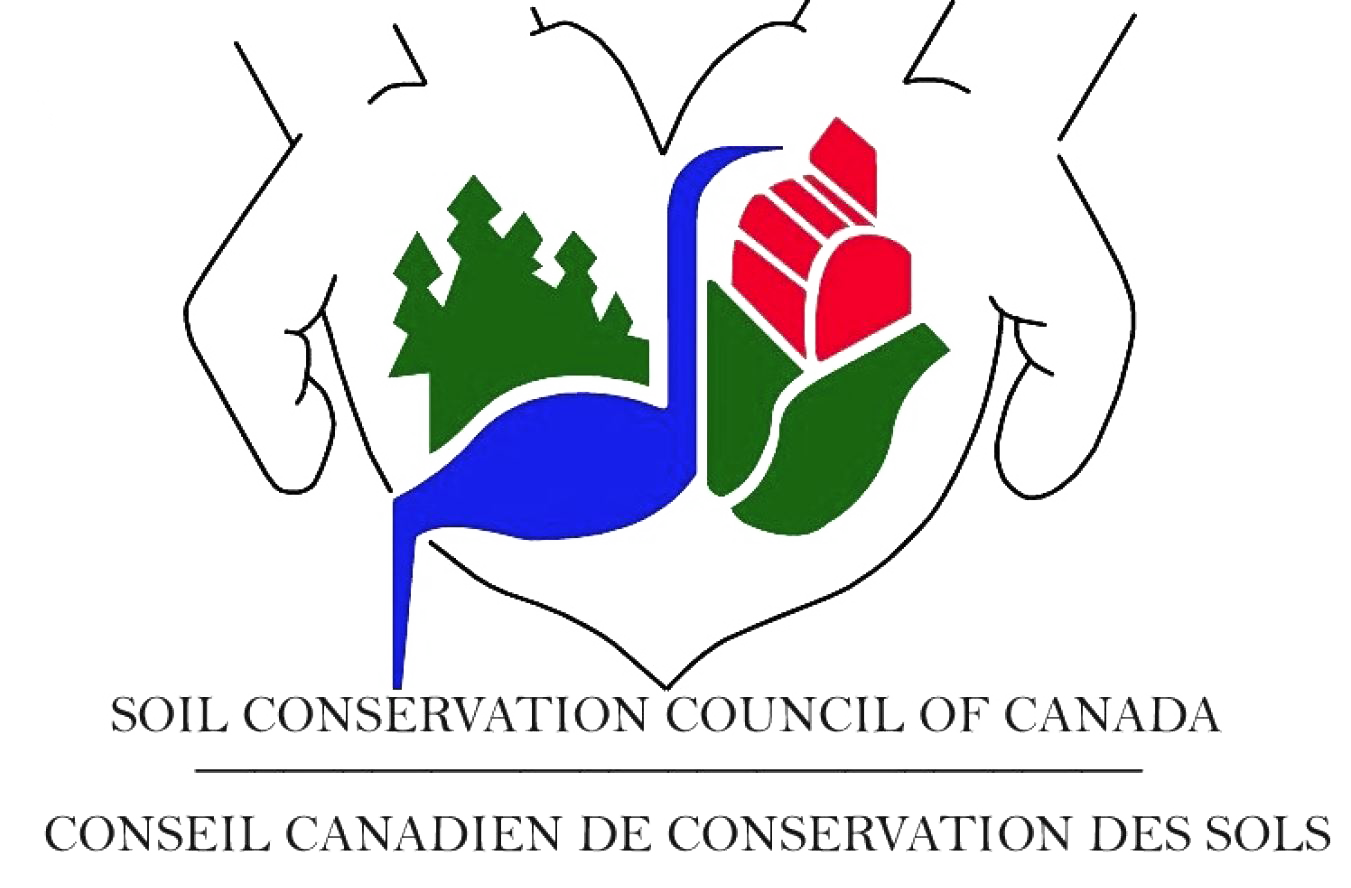- Soil Conservation Council of Canada (SCCC) is a national, non-government, independent organization formed in 1987 to provide a non-partisan public forum at the national level for soil and water conservation. It is the face and voice of soil conservation in Canada.
- In 1990 SCCC established the Canadian Conservation Hall of Fame which recognizes Canadians who have made a significant contribution through their dedication to promoting soil conservation in Canada. On a yearly basis SCCC accepts nominations of outstanding candidates to be inducted into the Conservation Hall of Fame.
- Lead role in implementation of National Soil Conservation Week. In the third week of April each year SCCC promotes conservation awareness and highlights the efforts of individuals who have provided leadership that has contributed to sustainable soil and water conservation in Canada.
- SCCC has worked with a national network of Provincial farm based and conservation organizations to promote beneficial management practices (BMPs), cooperation on research projects, delivery and coordination of soil conservation programs, educational and awareness activities and policy consultation on related to sustainable agriculture. This approach is seen as a unique producer directed model for delivery of programs aimed at raising awareness of agriculture and environmental issues and BMPs.
- Through this national network, SCCC has delivered to date, a series of 14 workshops across Canada on the 4R Nutrient Management program. These workshops provided direct information to producers that helps them practice nutrient stewardship on their farms to achieve cropping system goals, such as increased production, increased farm profitability, enhanced environmental protection and improved sustainability. The 4R concept incorporates the concepts of: Right fertilizer source, Right rate, Right time and Right place.
- SCCC delivered the soils and nutrient components of the Greenhouse Gas Mitigation Program for Canadian Agriculture (GHGMP) from 2001 to 2006. Under the program over 500 BMP demonstrations were established, over 41,000 producers attended events and over 500,000 people received information on GHGs and BMPs through factsheets and news articles.
- In 2009-2010 SCCC and the TCTs tested a greenhouse calculator (Holos) developed by Agriculture and Agri-Food Canada with producers across Canada. The objective of the testing was to determine the ease of use and the value of the calculator to producers considering the implementation of mitigation strategies to reduce GHGs.
- SCCC provides advice and recommendations to policy makers on a wide range of soil, environmental and conservation policies and continues to lobby the federal government for a national soil carbon offset system that benefits Canadian producers.
- Member of the Industry Province Offset Group (IPOG). The group, representing more than 80 organizations, has been working collaborative for more than two years to constructively provide policy and protocol advice to ensure offset systems are efficient, effective and have environmental integrity.
- Member of the Board of Directors of Nutrients for Life (NFL). The NFL is a non-profit organization providing science-based information to increase the understanding of how nutrients improve the health of soil, plants and food.
- Member of the Confederation of American Associations for the Sustainable Production of Agriculture (CAAPAS). CAAPAS is a producer directed conservation association with a mandate to promote sustainable farming practices in North and South American countries.
- Member of the Canadian Round Table for Sustainable Crops (CRSC). The Canadian Roundtable for Sustainable Crops is a national, multi-stakeholder initiative dedicated to advancing sustainable production practices and outcomes across Canada’s cereals, oilseeds, pulses and special crops sector (hereafter referred to as the ‘grains’ sector). The CRSC serves as a forum for facilitating cross-commodity collaboration and coordination on sustainable agriculture issues and opportunities facing grains sector participants
- SCCC works cooperatively with industry partners, Ducks Unlimited Canada, governments, the Canadian Cattlemen’s Association, Eastern Canada Soil and Water Conservation Centre, producer groups and other NGO to promote soil health and sustainable agriculture.
- SCCC maintains a website, www.soilcc.ca that provides information to the members, producers and the public on policies, programs and activities that affect the sustainable use of Canada’s soil and related resources.
- In June 2014, the SCCC, in partnership with Conservation Technology Information Centre (CTIC), co-hosted the 6th World Congress of Conservation Agriculture (WCCA). The WCCA is held every three years in a different country and this was the first time it was held in North America. The world-class four-day Congress hosted over 400 people from 49 countries including United States, Australia, India, South Africa, Brazil, Tunisia and Ethiopia. The event included keynote speakers, presentations, networking opportunities and Canadian and US tours to see conservation agriculture on farms. It was an exceptional opportunity to showcase Canada as a world leader in the adoption of sustainable practices, such as direct seeding, science innovation and high-quality agricultural production.
- SCCC hosted the Summit on Canadian Soil Health on December 3 in Calgary, Alberta. This SCCC event was held in conjunction with GrowCanada 2015 where leaders in Canadian agriculture came together to discuss a variety of issues of importance to the industry. SCCC used this opportunity to highlight soil conservation and health as key issues in the future of Canadian agriculture.
- The 2017 Summit on Canadian Soil Health was held in August in Guelph Ontario. During this two-day event over 150 people saw examples, in the field and in a conference setting, new and emerging science and technology aimed at stopping soil degradation and encouraging healthy soils. The focus of both days was on the costs and consequences of soil degradation in Canada.
